Narrative Non-Fiction
Imagine spending one night in a museum.
Imagine spending one night in a museum.
- SHIFTING THE MOON FROM ITS ORBIT, Andrea Marcolongo
- KING KASAI, Christophe Boltanski
- WHEN YOU LISTEN TO THIS SONG, Lola Lafon
- THE NATIONAL MUSEUM, Diane Mazloum
- THE TITANIC ARK, Éric Chevillard
- THE SKY INSIDE US, Jakuta Alikavazovic
- MUSES NEVER SLEEP, Zoé Valdes
- A SMELL OF FLOWERS IN THE NIGHT, Leïla Slimani
- EPHEMERAL, Bernard Chambaz
- BEHIND CLOSED DOORS WITH PICASSO, Enki Bilal
- THERE IS ONLY ONE LOVE, Santiago H. Amigorena
- A LESSON FROM THE SHADOWS, Léonor de Récondo
- SPANISH NIGHT, Adel Abdessemed & Christophe Ono-dit-Biot
- WALK ON TILL THE EVENING, Lydie Salvayre
- THE PAINTER DEVOURING THE FEMALE NUDE, Kamel Daoud
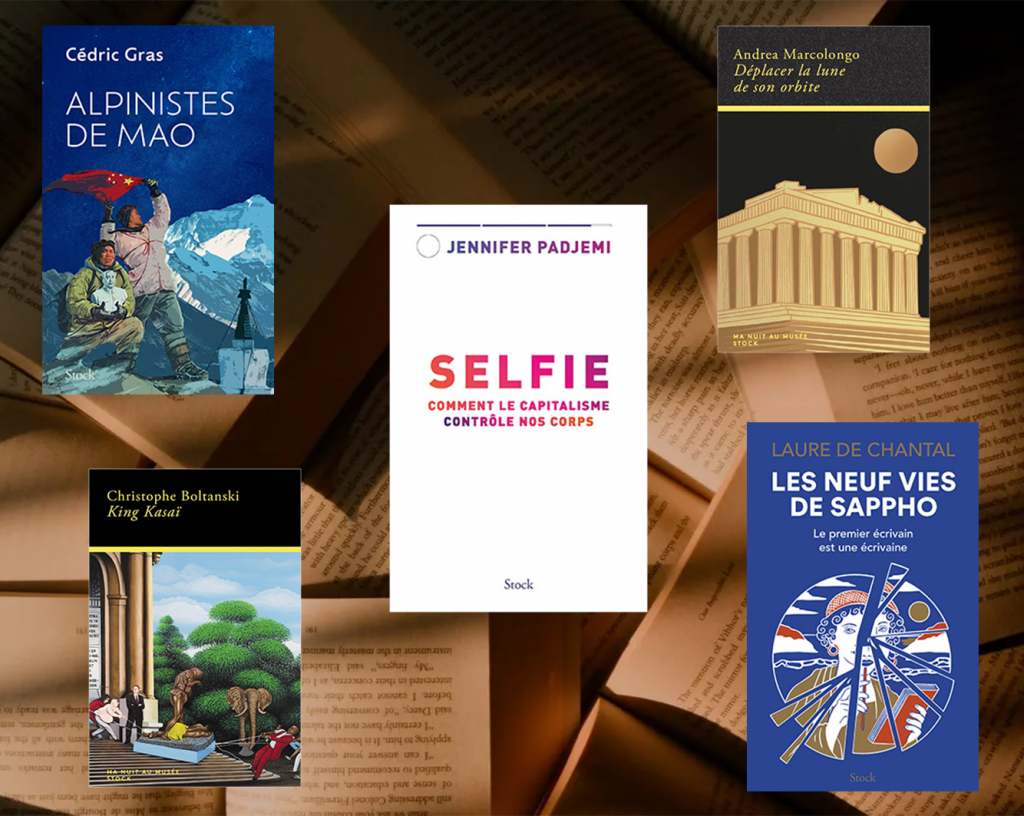
Contact us
Head of Rights
For German, Dutch, Greek, Middle Eastern, North African, Scandinavian, Turkish, UK and US inquiries
Foreign Rights Manager
For Asian, Brazilian, Eastern Europe, Italian, Portuguese, Russian, South American and Spanish inquiries
Dear friends,
We are delighted to unveil our 2023 Spring Non-Fiction Rights List.
We will be attending the London Book Fair in April. Do send us an e-mail should you wish to book an appointment!
You can also drop by our stand at International Rights Center table U18 and U19.
Don’t forget to peek in our 2023 Spring Fiction Rights List.
We very much looking forward to hearing from you!
The Rights Team
Mao's Mountaineers
Cédric Gras
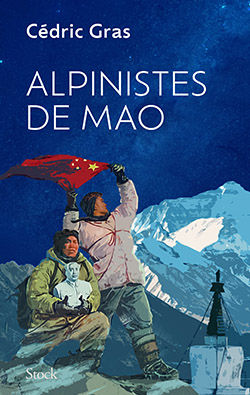
Travel Writing - March 2023 - 300 pages
Option in Germany (Tyrol Verlag), Italy (Corbaccio), Poland (Kobiece) and Russia (Sport-Marafon Library).
Through the stories of two working-class heroes, the author transports us into the Maoist era and its delusions.
Xu Djin and Liu Lianman had never seen a mountain before, let alone attempted climbing one. But in 1960 the Communist Party elevated them to the rank of “designated volunteers” and ordered them to conquer Everest. As part of China’s blind ambition to establish the definitive subjugation of Tibet, their mission was to put a bust of Mao Zedong on the summit of the world’s highest mountain.
Against a backdrop of rural famine and widespread repression, Cédric Gras uses in-depth research to reconstruct this climb shrouded in mystery… and lies. The climate of propaganda was so powerful that public opinion in China overlooked the fact that the summit had been reached from the Nepalese side seven years earlier, by Edmund Hillary and Tensing Norgay.
Will these improvised specialists manage to escape death which threatens them with every step? Despite Xu Djin and Liu Lianman’s dedication, they end up in one of the Cultural Revolution’s re-education camps and eventually take the Chinese regime’s Himalayan secrets to their graves.
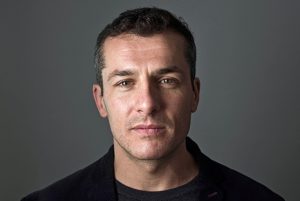
The author
Born in 1982, Cédric Gras studied geography all over the world and ran several different Alliances françaises in the post-Soviet region. He still travels the vast Eurasian expanses to fuel his writings and films. Stock published his previous books L’Hiver aux trousses (2015), Anthracite (2016), Saisons du voyage (2018) and Alpinistes de Staline (winner of the 2020 prix Albert Londres du livre).
Download the material
Find out more
Click hereFeminism/Women's Studies
Selfie
Jennifer Padjemi
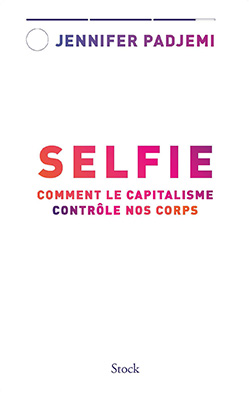
Women's Studies - March 2023 - 320 pages
A committed essay that explores the pressures exerted on women’s bodies and “toxic positivity”.
The wave of Body Positive movements freeing women from the prescriptive thinness of the early 2000s has made it easier to showcase different body shapes. But can women’s bodies actually be seen as free of all social pressure?
We’re increasingly exposed to the glorification of two opposing female types. On the one hand, the white upper middle class “fit girl” who looks after herself with detoxes, intermittent fasting and exercising with religious fervour. On the other, working-class women of colorcolour who are urged to achieve a racialised and sexualised physique (large breasts and buttocks) but also encouraged to strive for whiteness (with skin lightening, nose narrowing surgery and smooth-haired wigs).
The beauty industry, cosmetic brands and cosmetic surgery all profit from this toxic positivity, giving women a false sense of freedom about their bodies when in fact sexist inequalities and discrimination persist.
Jennifer Padjemi demonstrates how modern capitalism has appropriated all the new beauty ideals that were originally intended to work towards liberating women’s bodies, and she invites the reader to reject these new pressures.

The author
The independent journalist Jennifer Padjemi co-founded the newsletter What’s Good and created the podcast Miroir, Miroir (Binge Audio) that discusses how our bodies and appearance are represented (winner of the OUT Prix d’Or for best podcast in 2019). After the success of Féminisme et pop culture (2020, Stock), Selfie is her second essay.
Download the material
Find out more
Click hereThe Nine Lives of Sappho
Laure de Chantal
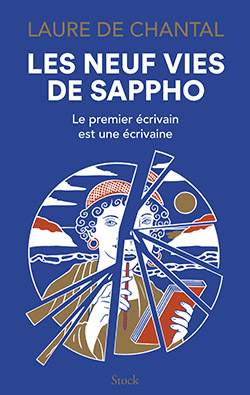
Feminism/History - March 2023 - 308 pages
An exciting and accessible study that explores the many faces of a feminist icon.
The first female writer, the first ever writer in fact, musician, philosopher, educator, political activist – in her own lifetime, Sappho (who lived in the seventh century BCE) was the first author to be recognised as a genius. From antiquity to the present day, her persona has constantly evolved, even to the point of being turned on its head, which – paradoxically – has given her the privilege of a whole new existence. Still betrayed, still alive and still a genius: that is Sappho of Mytilene.
This book examines some of these lives, nine parts of a fascinating puzzle. Sappho is always an unflinching mirror reflecting the image of women in each era, becoming by turns a courtesan, a pagan witch, a revolutionary activist, an inflammatory lesbian and, in the present day, a feminist icon. How often have we heard the word genius, a masculine noun, applied to a woman?
Through these nine lives of Sappho, a figurehead for all women who have dared to use the written word to have their voices heard, Laure de Chantal looks at the way feminine genius has been viewed by different societies, starting with our own.

The author
A former student of the Ecole Normale Supérieur with a prestigious “agréggation” teaching qualification in Classics, Laure de Chantal has written several works on the French language and on mythology, including A la table des Anciens (2007), Le Jardin des dieux (2015) and, published by Stock, Notre grammaire est sexy (co-written with Xavier Mauduit, 2021) and Libre comme une déesse grecque (2022).
Download the material
Find out more
Click here“My Night in a Museum” Series
An author is invited to spend a night in a museum and write a book on their experience.
Shifting the Moon from its Orbit
Andrea Marcolongo
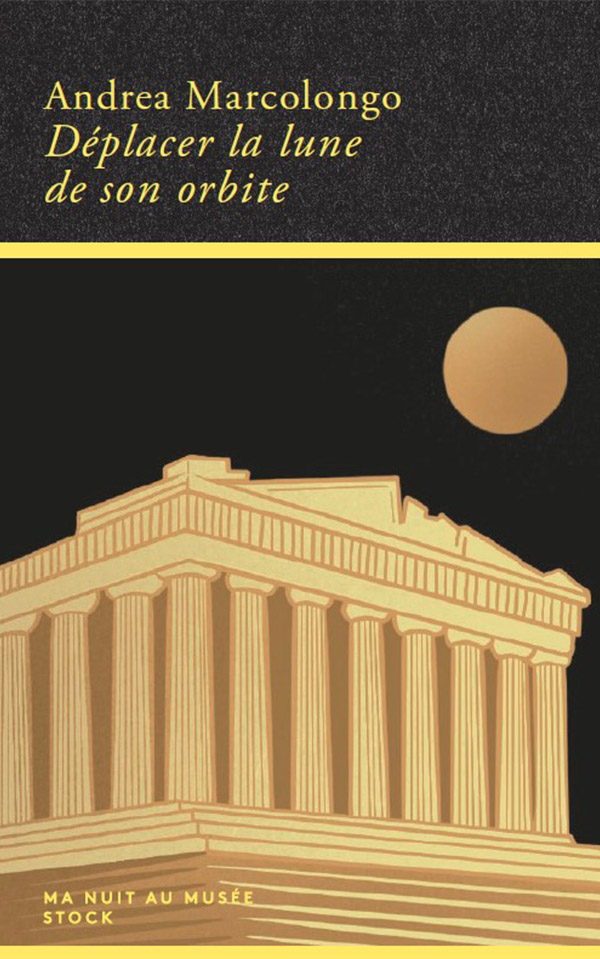
Narrative Non-Fiction/Art - April 2023 - 220 pages
Acropolis Museum
Rights sold to Italy (Einaudi).
Offer in UK & US.
Option in Greece (Patakis), the Netherlands (Wereldbibliotheek), Slovenia (Athenaeum), Spain (Taurus/Penguin Random House).
An intimate yet universal text about our relationship with language and the question of identity.
Andrea Marcolongo spent a a night with a waning moon completely alone on the cold floor of the Acropolis Museum in Athens. But can you really be alone when you’re watched by thousands of eyes carved in marble?
Come nightfall, it wasn’t so much the presence of these unfamiliar eyes that unsettled the author, but rather the absences. All that’s left in this museum, or any museum in Athens, are offcuts: One of Zeus’s hands, a horse’s head, a section of pediment from a temple. The West was built on fragments of marble torn from Greece with pickaxes and sent to England by Lord Elgin in the 19th Century.
In this museum that howls in silence about this collective theft the author considered what shapes our identity and spent her night haunted by a feeling of being just another impostor: “I’m not Greek, I don’t speak modern Greek, but I still built my life and my writing on this theft.”

The author
Andrea Marcolongo was born in Crema in 1987. A Hellenist with a Classic’s degree from Milan’s Università degli Studi, she is the author of La lingua geniale (2018), La misura eroica (2019), Alla fonte delle parole (2020) and La lezione di Enea (2021). Her books have been published in translation in 28 countries. She now lives in Paris.
Download the material
Find out more
Click hereKing Kasaï
Christophe Boltanski
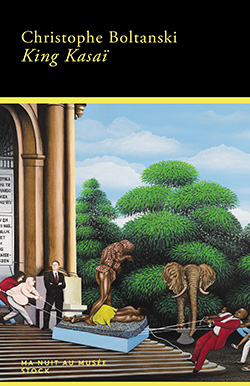
Narrative Non-Fiction/History - January 2023 - 160 pages
Africa Museum
Rights sold to Italy (ADD Editore)
Option in Germany (Hanser) and the Netherlands (Cossee).
Christophe Boltanski feels his way through the underbelly of European colonial history.
When it was opened in 1897, the Royal Museum of Central Africa near Brussels showcased Belgian colonialism in Congo. On an initiative of Léopold II, stuffed animals, geological samples, food products, and objects of ethnographic and artistic interest from Congo were unveiled. A whole African village was even recreated in the grounds, costing the lives of its seven inhabitants.
Reopened four years ago as the Africa Museum, the establishment is still struggling to come to terms with its dark past. The author Christophe Boltanski decides to spend a night in this place full of ghosts in order to learn to live with them. Entering like an explorer in an ecosystem full of ferocious wild animals, he also finds statues and other clichés snapshots of the European colonial era, including the stuffed body of King Kasaï. This elephant was hunted and shot to order for the museum and was a propaganda tool for Léopold II’s colonial project for many years.
Setting off in the footsteps of the hunter who took part in this zoological expedition and killed the elephant in 1956, the author ventures into the heart of the most violent darkness – our memories.

The author
The writer and journalist Christophe Boltanski is the author of Minerais de sang (Grasset, 2012), La Cache (Stock, 2015), which won the 2015 prix Femina and sold 120,000 copies, Le Guetteur (Stock, 2018), and Les Vies de Jacob (Stock, 2021).
Download the material
Find out more
Click hereWhen You Listen to this Song
Lola Lafon
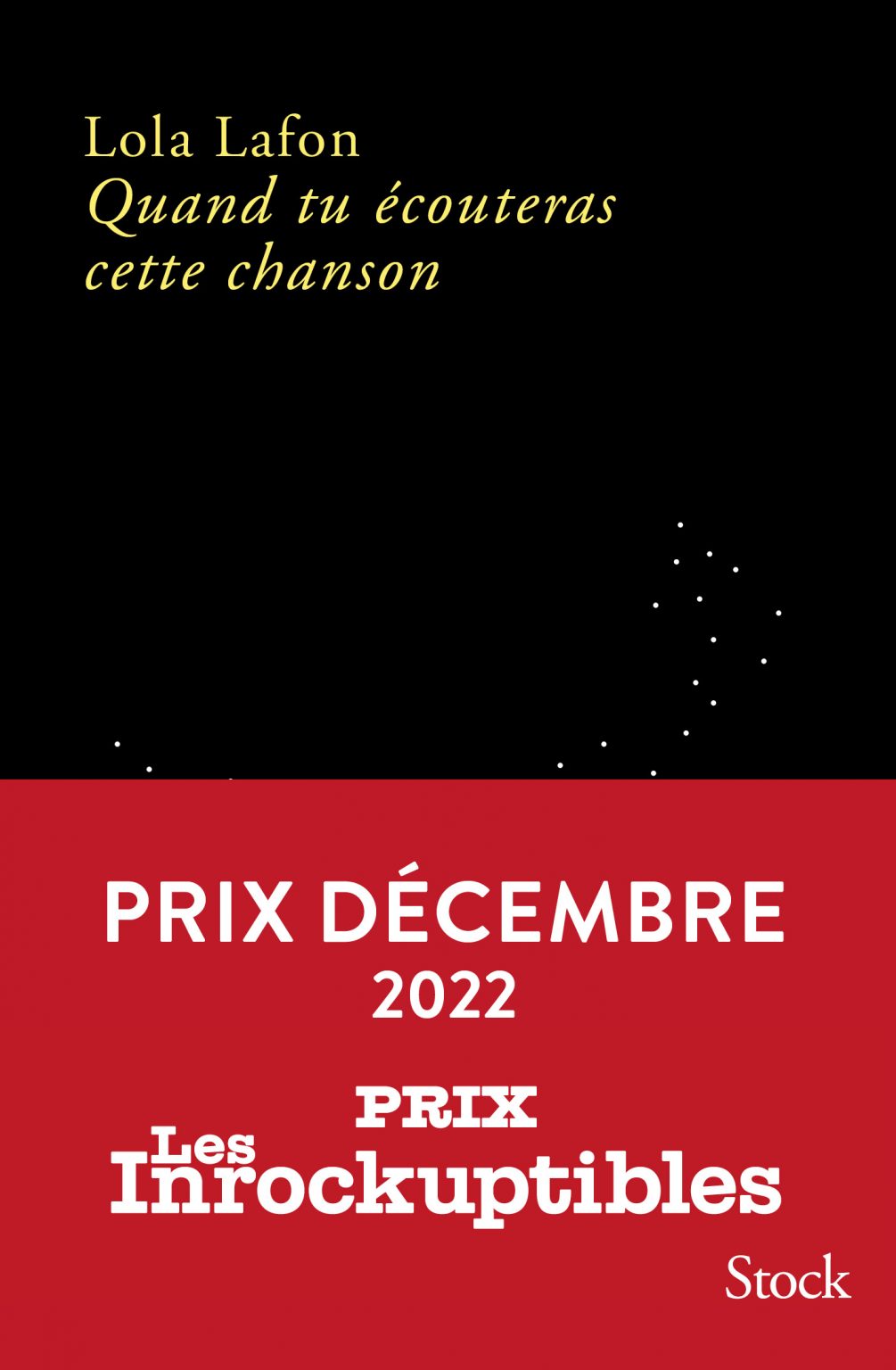
Prix Décembre 2022
Prix Les Inrockuptibles 2022
Narrative Non-Fiction/Art - August 2022 - 256 pages
Anne Frank House
Rights sold to Brazil (Paris de Historias), Germany (Aufbau), Italy (Einaudi, preempt), the Netherlands (De Arbeiderspers, auctions), Slovakia (Inaque), Spain (Alianza, WSL, auctions) and US (Yale UP, WEL).
Option in China (Haitian), Japan (Hayakawa), and Russia (Corpus).
Lola Lafon spends a night in Anne Frank’s house in Amsterdam, an empty museum haunted by absence.
“Anne Frank is so much a story ‘everyone knows’ that no one actually knows that much about it. Because ‘everyone knows’ doesn’t mean ‘everyone understands’, but that we’re in a hurry to move on, and tidy this little ghost away in a museum.
The Anne Frank House is an empty apartment. What visitors file past is the absence of its inhabitants. And it’s this emptiness that transforms the apartment, the annexe, into a museum. But that emptiness doesn’t exist. It is peopled with reflections that bear witness to the chasm left by Anne Frank’s death.
I will go from one room to another all through the night as if an emergency is still hiding there, waiting to be found.”

The author
Lola Lafon grew up in Eastern Europe between Sofia et Bucharest. She studied Dance and Music in Paris and New York. Her literary output of six novels to date is distinctive for its thorough exploration of narrative forms. La petite communiste qui ne souriait jamais (Actes Sud, 2014) was translated into 11 languages and awarded many prizes including the Madame Figaro Heroine Prize, the prix de la Closerie de Lilas and the prix Étonnants Voyageurs. Chavirer (Actes Sud, 2020) was translated into 16 languages and awarded the prix Landerneau, the prix France Culture Télérama and the Swiss Choix Goncourt.
Download the material
Find out more
Click hereThe National Museum
Diane Mazloum
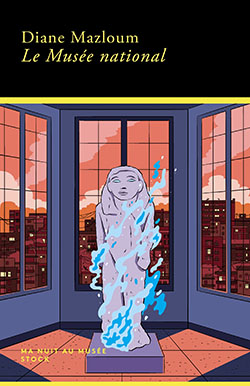
Narrative Non Fiction/Art - March 2022 - 176 pages
National Museum of Beirut
Rights sold to Lebanon (Librairie Antoine, French language)
Diane Mazloum spends a night in the National Museum of Beirut, the only national commemorative building in this fragile, divided nation.
The National Museum of Beirut stands on what was the murderous frontier between East and West Beirut during the civil war that lasted 15 years – if it can even be said to have ended.
How did this temple which harbours the treasures of vanished civilisations – from the Egyptians to the Babylonians and the Byzantines to the Mamluks – survive mankind’s brutal assaults?
During her close brush with this sediment of historical material, this confetti of bygone empires, Diane Mazloum comes to understand that the past shapes the present, and the shadows of the dead are cast over the living and inform who they are.

The author
Diane Mazloum was born in Paris and grew up in Rome. She is Lebanese and is the author of several books, including Beyrouth, la nuit (2014, Stock), L’Âge d’or (2018, JC Lattès) and Une piscine dans le désert (2020, JC Lattès), all of which were shortlisted for literary prizes.
Download the material
Find out more
Click hereThe Titanic Ark
Éric Chevillard
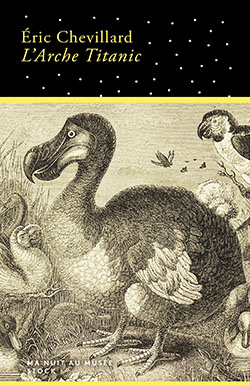
Narrative Non Fiction/Art - January 2022 - 176 pages
Museum of Natural History
Éric Chevillard spends a night in the hall for extinct and threatened species at the Paris Natural History Museum.
The place is frightening, exotic and very inspiring for writing. Between his wanderings and contemplations, the author imagines being a saviour for these lost worlds. He encourages us to think about these extinct species and the conservation of the human race, raising a question at the heart of modern-day concerns: what is our place on this earth and what is our relationship with nature and other animals? He claims that “To resuscitate lost species, rather than the uncertainties of cloning, wouldn’t it be wiser to put our faith in poetry?”
With its sublime writing, this book takes an inventive look at preserving threatened species.

The author
Éric Chevillard first came to public attention in the 80s as one of the “minimalist” writers at Les Editions de Minuit, alongside Jean Echenoz, Jean-Philippe Toussaint and François Bon. His work is characterised by its subverting of narrative conventions and its quirky humour; it has earned widespread critical acclaim and has been translated into 12 languages. His most famous books include Mourir m’enrhume (1987), La Nébuleuse du crabe (1993) and Vaillant Petit Tailleur (2004). Since 2007, he has written a literary blog called L’Autofictif.
Download the material
Find out more
Click hereThe Sky Inside Us
Jakuta Alikavazovic
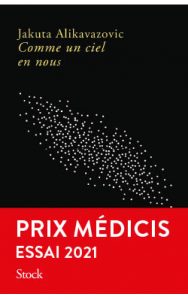
PRIX MEDICIS ESSAI 2021
Narrative Non-Fiction/Art - September 2021 - 160 pages
The Louvre Museum
Rights sold to Germany (Carl Hanser Verlag), the US (Fern Books) and Spain (Muñeca Infinita).
Jakuta Alikavazovic at the Louvre! Intimately surrounded by classic masterpieces, she reveals her roots.
Imagine a night alone with the greatest treasures in French heritage. The novelist spent this night wandering around the Ancient World sections, with a bag slung across her shoulders containing, amongst other things, an illicit bar of nougat. This personal and original book is peopled with nocturnal shadows and ghosts of the past, and the glide of bare feet past the Venus de Milo.
But Alikavazovic soon explains her intention: “I came here tonight to become my father’s daughter again.” Her father was born in 1951, in a village in Montenegro, which was then part of Yugoslavia. Without a word of French, he came to Paris out of love, to escape, and to see the Louvre. He sees the museum as a city within a city. This exiled father, a scavenger-aesthete, once strolled casually around the Louvre with his daughter Jakuta and asked her, “So, how would you go about stealing the Mona Lisa?”

The author
A novelist and translator of English born in 1979, Jakuta Alikavazovic won the 2008 Prix Goncourt for a first novel for Corps volatils. La Blonde et le Bunker received a special merit in the Prix Wepler. Her most significant translations have been into English with Granta.
Download the material
Find out more
Click hereMuses Never Sleep
Zoé Valdès
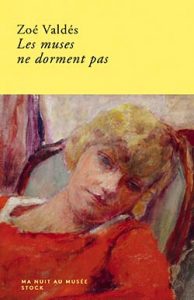
Art/Narrative - June 2021 - 224 pages
Thyssen-Bornemisza Museum
Rights sold to Spain (Thyssen Museum)
The expression “dead painting” is used by French auctioneers for works that can’t be authenticated…
When she visits the galleries of the Thyssen-Bornemisza Museum in Madrid, Zoé Valdés finds herself immersed in a half-fantasy, half-real world. She takes us with her in her pursuit of two muses and two famous painters, Balthus and Bonnard.
The first part of the novel introduces a young model who poses for Balthus, playing cat and mouse with the master who painted “Passage du commerce Saint-André”. Who’s looking at who? Who wants who? Does art produce dreams in a semi-conscious state or scorching reality?
The second part shows us another muse, Renée de Monchaty, the lover idealised by Pierre Bonnard in “Femme à sa toilette” who, broken-hearted, took her own life in 1925.
The muses are young women, sometimes teenagers, innocents sacrificed on the altar of the painters’ desire. In this sensual, sleep-walking narrative tinged with Latin American-style magic realism, truth and illusion intertwine like poisonous flowers.

The author
Born in Havana in May 1959, Zoé Valdés is a novelist, poet and filmmaker, as well as a known figure within the opposition to the Cuban political regime. She found asylum Paris in 1995 following the publication of her controversial book Le Néant quotidien. Winner of the 1996 Prix Planeta, she has written many books, including La Douleur du dollar.
Download the material
Find out more
Click hereA Smell of Flowers in the Night
Leïla Slimani
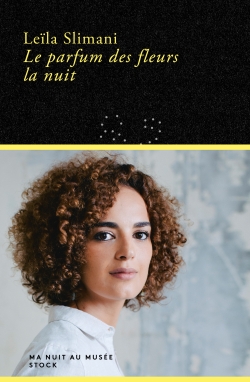
OVER 100.000 COPIES SOLD
Art/Narrative - January 2021 - 120 pages
Punta Della Dogana Museum
Rights sold to Germany (Luchterhand), Brazil (Casa dos Livros), Portugal (Objectiva), Italy (La Nave di Teseo), Korea (Mujintree), Slovakia (Inaque), Spain (Cabaret Voltaire), Taiwan (Ecus), UK (Hodder) and USA (Mobius)
Leïla Slimani, winner of the 2016 prix Goncourt, doesn’t like leaving home and prefers solitude to entertainment. So why agree to spend a sleepless night in the Punta della Dogona Museum in Venice?
Reflecting upon the “impossibility” of a book whilst subtly digressing in the Venetian night, Leila Slimani talks about herself, about imprisonment, intimacy, identity, being caught in the middle, between East and West.
A discreet, sensitive confession in which the author mentions her father who was once imprisoned.
But this book – with its intensity and inner fire – is also about beauty disappearing and how urgently we must make the most of it. It is about the glory of the ephemeral.
At dawn, although awake and alert, the author emerges from the building as if from a dream, and all that is left of her night is the smell of flowers.
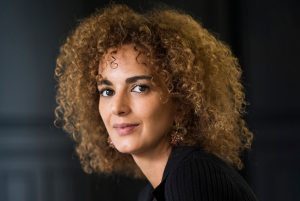
The author
Leïla Slimani was born in 1981. She has written three acclaimed novels published by Gallimard, including Lullaby, which won the 2016 Prix Goncourt, was sold to 44 countries and has sold over a million copies in France.
Download the material
Find out more
Click hereEphemeral
Bernard Chambaz

Art/Narrative - September 2020 - 128 pages
Franco Maria Ricci Museum
A night in the world’s largest maze surrounded by works of art at the Franco Maria Ricci Museum in Parma.
Franco Maria Ricci founded the prestigious FMR magazine and the Labirinto della Masone in Parma where his art collections are housed. Next to it he grew the bamboo maze which is the largest maze in the world.
Over one night, Bernard Chambaz comes across many individuals whose lives build his narrative. Franco Maria Ricci himself, first young then aging, arousing subtle feelings of tenderness. The writers who gave him texts, such as Borgès, Giono and Zavattini. Donizetti whose skullcap was stolen during his autopsy. Clelia Marchi, a 72-year-old peasant woman who chronicled history in ink on her bridal sheet. The luxury shoemaker Ferragamo who started as a small-time cobbler. And so many others.

The author
The novelist, poet and historian Bernard Chambaz won the 1993 Goncourt Prize for a debut novel for L’Arbre de vies (F. Bourin), and the 2014 prix Jouvenel from the Académie française and the sporting literature Grand prix for Dernières nouvelles du martin-pêcheur (Flammarion).
Download the material
Find out more
Click hereBehind Closed Doors with Picasso
Enki Bilal
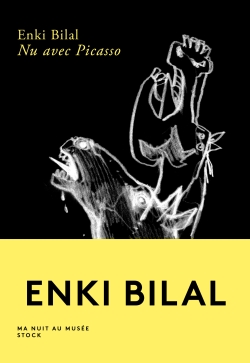
Art/Narrative - June 2020 - 96 pages, illustrated
Picasso Museum
A supernatural night at the Picasso Museum for Enki Bilal, one of the greatest and most popular creators of comic books.
What is this strange ultra-powerful hand picking up Enki Bilal in the middle of the night and putting him on a camp bed? And what is this mysterious, haunted place where he ends up?
During his hallucinatory exploration, Enki Bilal meets not only personalities from Picasso’s life, his muses and models, but also the great master himself and his idol Goya. His wanderings through the corridors of the Picasso Museum take the form of a waking dream, allowing us to touch the painter’s work in a captivating, sensual way, culminating in the epiphany of the master’s great work, Guernica.
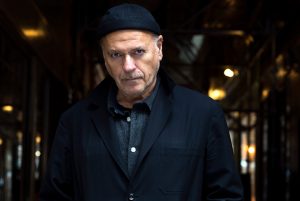
The author
Enki Bilal, to use his pen name, was born in Belgrade on 7th October 1951. In Serbo-Croat and French, his family name is Enes Bilanovic. He creates, writes and illustrates comic books in French. He works partly in the realms of science fiction and tackles themes of time and memory. In 1987 he was awarded the Grand Prix at Angoulême Comics Festival.
Download the material
Find out more
Click hereThere Is Only One Love
Santiago H. Amigorena
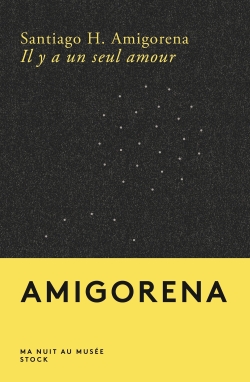
Art/Narrative - March 2020 - 128 pages
Picasso Museum
Santiago Amigorena’s love letter to paintings and the woman he loves.
There’s only one love.
Or rather, is there only one love? Do we mean the same love with reference to a painting as to another person? What’s the score with love? Santiago Amigorena wonders.
Deep in a sleeping museum, questions become statements, and statements questions. Clinging resolutely to the thread of love, Amigorena waits through sleep and dreams for the paintings to guide him and give him answers. During this night of enforced solitude – peopled by Picasso, Giacometti or perhaps Vermeer and Bataille – he gently but in great depth explores love, writing, art and the inextricable links between them.

The author
Born in Buenos Aires in 1962, Santiago H. Amigorena is an Argentine writer, director, screenwriter and producer who lives in France. His books are published by P.O.L. His tenth novel, Le Ghetto intérieur, was a renowned success in France and was sold all over the world.
Download the material
Find out more
Click hereA Lesson from the Shadows
Léonor de Récondo
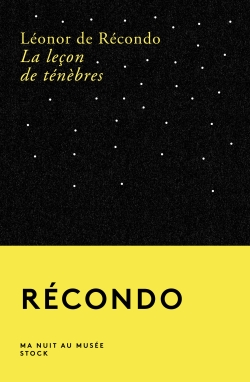
Art/Narrative - January 2020 - 160 pages
El Greco Museum
Rights sold to Korea (Mujintree) and Spain (Minuscula)
A dreamlike night in the private world of the great master of the Spanish School at the El Greco Museum in Toledo.
During a dreamlike night, Léonor de Recondo looks for the most original painter of the Sixteenth Century: Dominikos Theotokopoulos, known as El Greco, in his museum in Toledo.
In this overheated museum which recreates the artist’s home, her heart beats faster. While she waits to meet the artist, she plays the violin, admires his poorly lit paintings emerging from the shadows, and collates snatches of the painter’s little-known life story.
Will El Greco, who died in in 1614, be there to meet her?

The author
Writer and violinist Léonor de Récondo has recorded some fifteen albums and published six novels, including Amours (winner of the Prix des Libraires and the Prix RTL/Lire) and Point cardinal (winner of the Prix du Roman France-Culture/Télérama).
Download the material
Find out more
Click hereSpanish Night
Adel Abdessemed & Christophe Ono-dit-Biot
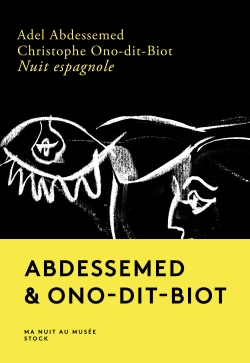
Art/Narrative - October 2019 - 224 pages, 23 illustrations
Picasso Museum
Rights sold to Italy (La Nave di Teseo) and Korea (Mujintree)
Two contemporary artists are on a quest for Picasso’s legendary work, Guernica. A book that celebrates art and friendship.
Adel Abdessemed and Christophe Ono-dit-Biot are invited to the Guernica exhibition at the Picasso Museum for one night. Paradoxically, the centrepiece of the exhibition is absent because it can no longer leave Spanish soil. Armed respectively with chalk and a pen, they set out to find precursors of the Guernica in the other paintings exhibited.
But the missing work soon refers the artist back to his own story in Algeria: he spent his childhood with a charcoal pencil in his hand and hasn’t stopped drawing since, but had to flee to express his indomitable freedom from any form of power, be it political or religious.
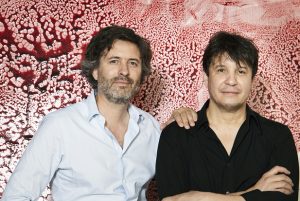
The authors
Born in Algeria, Adel Abdessemed is an artist exhibited worldwide from Moma in New York to the Pompidou Centre in Paris.
Christophe Ono-Dit-Biot is a journalist, deputy editorial director of Le Point and a prize-winning novelist. His books include Birmane (Winner of the Prix Interallié), Plonger (Grand Prix of the Académie Française), and Croire au merveilleux.
Download the material
Find out more
Click hereWalk on till the Evening
Lydie Salvayre
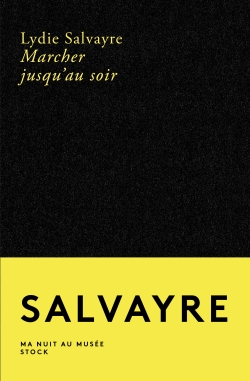
Art/Narrative - April 2019 - 224 pages
Picasso Museum
Rights sold to Korea (Mujintree) and Spain (El Desvelo).
With Giacometti’s statue The Walking Man as a starting point, the 2014 Goncourt winner undertakes an emotional re-exploration of her indignation and her family’s story as the daughter of a Spanish exile.
Lydie Salvayre spent a whole night alone at the Picasso Museum during its Picasso-Giacometti exhibition. Having had a lasting passion for The Walking Man (a work that she sees as the very essence of art but had only previously seen photographed in magazines), she was sure to be profoundly moved when confronted with so much beauty. And yet, seeing this “motionless, frozen but also moving body, like a waves at sea that the cold has frozen the swell” produces only mild irritation in her.
Is she illiterate in beauty? Is this sensibility passed on only among the well-to-do to reinforce their exclusivity? Unless the space is cramping the piece and robbing it of its profound message? Between the lines – as the author reveals her relationship with her father, her family of exiled Spanish communists, her obsession with humility and the denunciation anchored within every injustice – the reader gradually discovers her demanding expectations of art and her fear of death. A powerful, full-blooded read
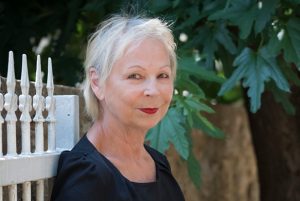
The author
Lydie Salvayre has written some twenty books, translated into many languages, including Pas pleurer which won the 2014 prix Goncourt (300,000 copies sold).
Download the material
Find out more
Click hereThe Painter Devouring the Female Nude
Kamel Daoud
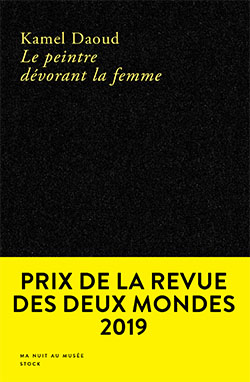
Art/Narrative - October 2018 - 220 pages
Picasso Museum
Rights sold to Germany (Kiwi), Italy (La Nave di Teseo), Korea (Mujintree), the Netherlands (Ambo/Anthos), Taiwan (Utopie) and Morocco (Virgule Editions, French language).
One of the greatest Arabic writers revisits the theme of nudes, desire and women.
Kamel Daoud spent a night alone in the Picasso Museum, a singular experience that inspired him to write this essay in which he juxtaposes the image of a female nude with the painter and a Jihadist. To Picasso, a woman was a body that could be truly captured only in terms of desire and erotic associations. The nude is also like a self-portrait imprinted on his subject’s flesh. In fact, she devours him, like a cannibal. But how does a Jihadist view this painting? In his view, the woman painted by Picasso is a scandalous anticipation of dream woman who awaits him in paradise, when he dies. She therefore incites disobedience and sin.
For the former, she evokes dying of desire. For the latter, killing desire itself or dying in order to satisfy it.
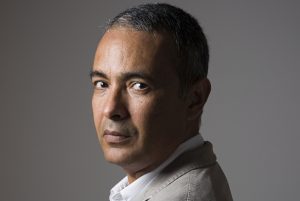
The author
Kamel Daoud was born in Algeria in 1970. He grew up in the village of Mesra near Oran. He is a columnist for Le Point, and Le Quotidien d’Oran, and a contributor to The New York Times and El País. His previous books include the bestseller The Meursault Investigation which has been published in translation across the world.
Download the material
Find out more
Click herePourquoi collectons-nous vos données ?
Les informations que nous collectons nous permettront de vous proposer des contenus personnalisés et adaptés en fonction de votre profil.
Tout savoir sur les données personnelles
